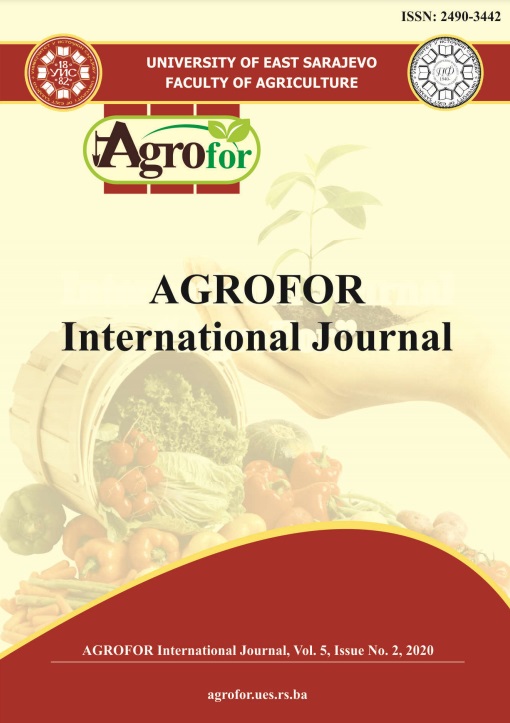A PORK VALUE CHAIN IN PORTUGAL: THE CASE STUDY OF PORCO ALENTEJANO, MONTANHEIRA SYSTEM AND TRADITIONAL PRODUCTS
DOI:
https://doi.org/10.7251/AGRENG2002064PAbstract
For the production of the Porco Alentejano, an autochthonous Portuguese porcine
breed, the Montanheira system is a crucial process, corresponding to a period of an
intensive pig´s fattening in the Montado. It occurs between October and March,
where the pigs freely consume the acorns. Montado is an agro-forestry-pastoral
Portuguese system created by the human intervention, which occupies a large part
of the territory, being a source of unique products, as the cork and the acorn.
Montado´s management is a complex process due to its susceptibility to
disturbances of soil and Quercus trees, and a dynamic between the economic
activities and the conservation of this system. The objective of this study is to
estimate, along the value chain, the Gross Product of the acorn, the Montanheira
pig value, and of the fresh meat and final processed products, protected designation
of origin (PDO) products. From the secondary information about the Montado area,
the Porco Alentejano herds, and with the information collected in the field works,
we estimate and present the results. The pig is the most efficient animal in the
acorn conversion, multiplying by ten the economic value of food animal resource.
The transformation into high quality traditional PDO hams and shoulders increases
about 50% the value of the Porco Alentejano reared in Montanheira. The joint
between the Montado and the development of rural areas, where the studied animal
rearing takes place, is a good example of the balance between the economy, the
sustainability of natural resources and cultural heritage.

